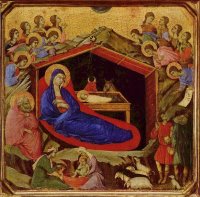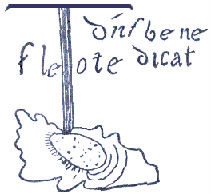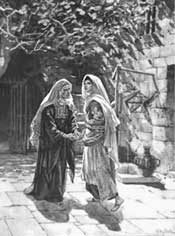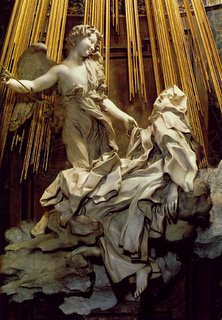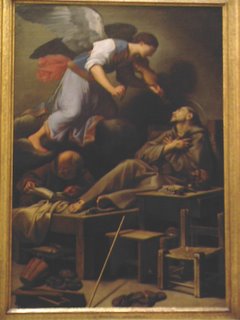
Peace and Good!
The power of music. Once Francis was ill and asked a brother to play him some music to help him through. The brother demurred, not thinking it fitting. Later Francis heard music, as if played by an angel on a heavenly violin. It helped him in his suffering and revealed yet another aspect of God’s compassionate love for us.
In the last two days I have had two experiences with music which have made me reflect on its power. Last night, I had a classical music station playing as I finished up some work. At first it was just background sound, but suddenly something plucked at me and I started listening to it. I could not tell you whose work it was (I’m not great at recognizing composers), but I only know that its beauty and power suddenly touched my heart and led me to stop and listen and enter into it. I thanked the Lord for that moment, and the gift of the composer, as well as the musicians, who cooperated with the Holy Spirit to express such beauty.
Today, after finishing my swim, I entered the locker room. Someone was playing some rap song or other (I really couldn’t tell you who composed that). I noticed right away that that music made me uneasy, and I hurried to get changed and get out of there. I don’t know how the others there were affected by it. I’ve been there before when such music was playing and, although I’ve never liked it, this was the first time I noticed its effect on me.
In neither case did I set out to listen to music and make a judgment about it, but both times I noticed how it affected me, both positively and negatively. Two things came to me from this.
Firstly, it is important what kind of ‘music’ we allow into our lives. We have to realize the way various things can affect us, and make our choices accordingly. Francis let the music of the Scriptures and Sacraments, love of God and of others, as well as the rhythms and beauties of creation, fill the ears of his heart and lead him to the one who is Beauty and Harmony itself. So it shouldn’t be strange that he heard angelic music that night as he lay suffering. He trained himself, or better, let the Spirit train him, to listen and truly hear such music.
Besides this, however, it’s also important to ask what kind of ‘music’ I am playing for others. My life affects others, by its harmonies and its disharmonies. My words and my actions, my attitudes and decisions, produce a certain quality of music. Francis realized that his life was lived not in splendid isolation but in the midst of God’s world, and that what he did, how he lived in that world, was important. So he also tried to produce for God as beautiful song as he could, even when that meant rubbing two twigs together and weeping for the passion of Jesus Christ. The music of his life still reverberates, even in the blogosphere!
So, Lord, this day I thank you for lovely music and ask that I may learn to listen to your angelic viols and take my own part in the divine symphony you conduct each day. Francis, my brother, teach us how to listen to and play the music of the Gospels, with Jesus as composer, conductor, and orchestra member. Amen.
God bless you all!
